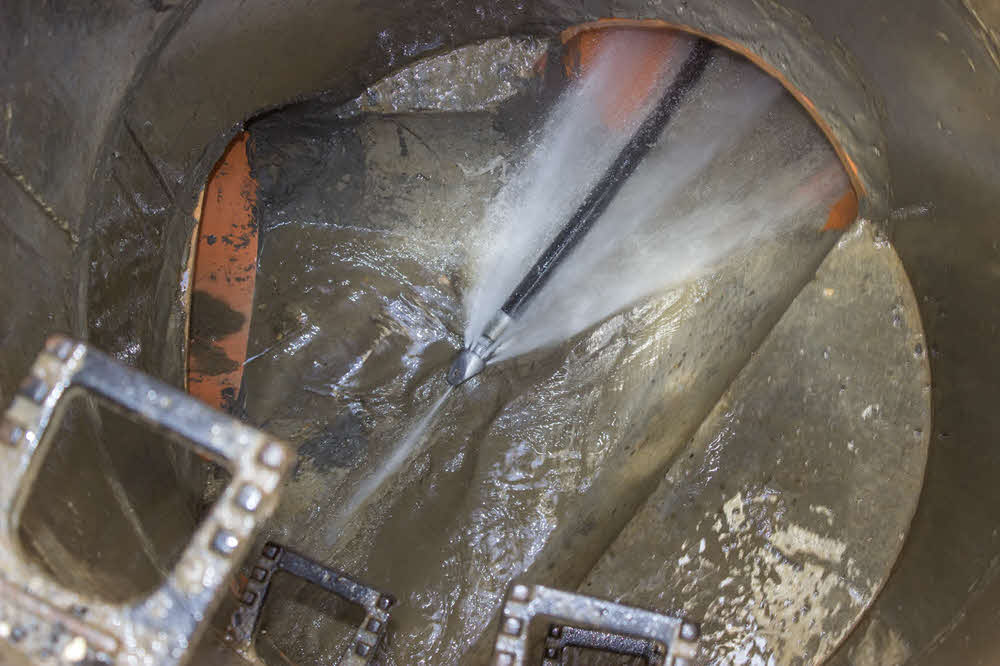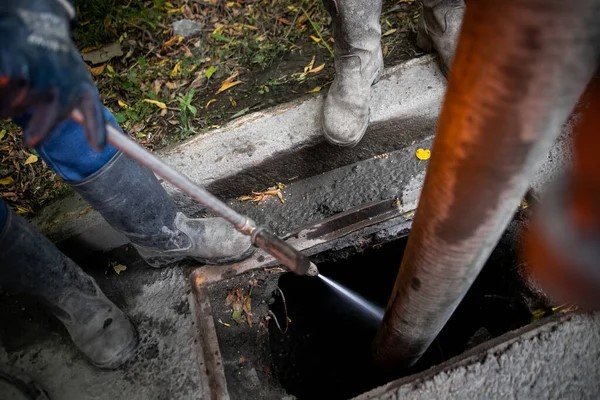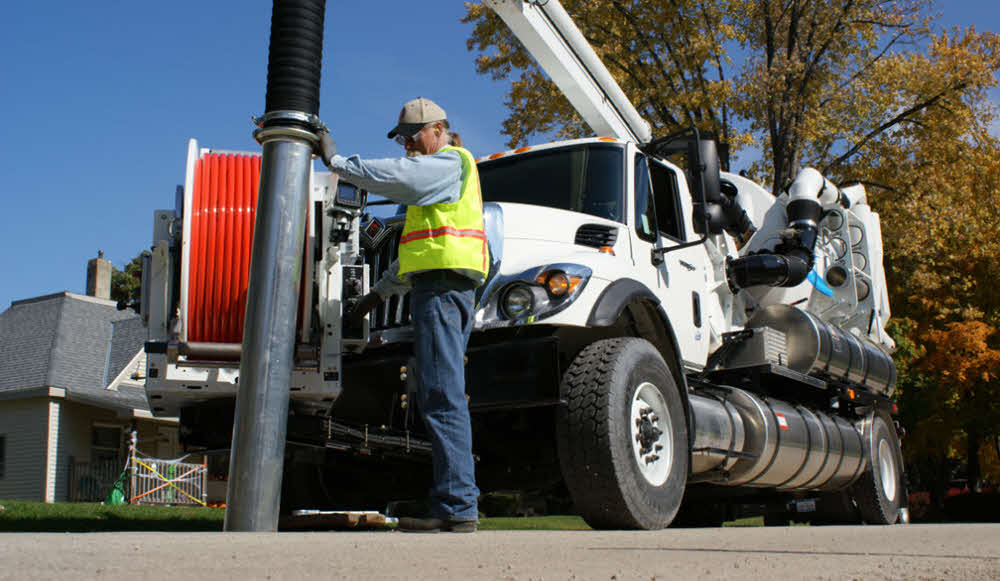Sewer Clean Out Servicesin Clarkston MI
Sewer Clean Outs to Keep Your Plumbing Running Smoothly
We Are Locally Owned & Operated For Over 37 Years
Contact Us Today!
We Serve Businesses In And Around The Following Cities:
About Sewer Clean Out Services
Understanding Sewer Clean Out in Clarkston
When it comes to maintaining commercial properties in Clarkston, one of the most overlooked yet crucial aspects is the Sewer Clean Out process. Sewer systems play a vital role in any property—effectively driving away waste material to ensure a healthy, sanitary environment. However, in the course of prolonged usage, these systems, particularly the sewer lines, can encounter several mishaps—ranging from blockages and clogs to complete collapses. This comprehensive guide will provide you with a detailed understanding of the Sewer Clean Out process, its benefits, real-world applications, and its key relevance to businesses in Clarkston. It also contains valuable information surrounding necessary repairs, replacements, and installation costs.
Recognizing Issues with Your Sewer Lines
The first step to addressing any plumbing issue is to recognize the problem. The main sewer line from your building to the street can be the source of multiple issues. These range from a simple sewer drain blockage or clog to more complex problems like a collapsed sewer line. The latter can incur a significant collapsed sewer line repair cost. Therefore, it is essential to detect and fix sewer line issues before they exacerbate over time. Signs of a blocked sewer line include slow drainage, foul odors, and unusual noises from the sewer pipes.
An efficient way to deal with severe blockages is hydro jetting sewer line: a process that flushes out debris using high-pressure water jets. Another prevalent issue is the sewer line becoming clogged due to tree roots infiltration, causing the need for repair or replacement. Companies such as D&J Contracting offer services for these common problems, providing localized sewer line repair near Clarkston
Understanding the Process of Sewer Line Replacement and Repair
The process, price to replace a sewer line, or implement sewer line repair depends on the gravity of the issue. For simple blockages, companies might opt for sewer pipe jetting to clean the sewer line effectively. This cost to fix a sewer line can vary and is typically affordable for most commercial businesses.
However, major issues such as a collapsed sewer line might require trenchless sewer line replacement—a method that replaces the damaged sewer line without extensive digging. This method, while costlier, significantly reduces the disruption caused by traditional pipe replacement methods. Such advanced services are offered by D&J Contracting, who are well-versed in trenchless sewer line replacement near Clarkston.
The Importance of Sewer Clean Out for Commercial Properties
Being proactive than reactive is the optimal approach to maintain all aspects of commercial property management, especially plumbing and sewer lines. Ensuring a regular Sewer Clean Out schedule benefits the business in several ways. Firstly, it avoids expensive and disruptive repairs or replacements, such as the average cost of replacing the sewer line, which can run in the thousands.
A regular Sewer Clean Out also assists in early detection of potential issues, therefore guaranteeing a prompt fix before it escalates into a costly disaster. For instance, hydro clean sewer line services help spot issues early on by removing blockages and ensuring smooth operation. D&J Contracting provides stellar services to aid businesses in such proactive measures.
Conclusion
In the grand scheme of commercial property management, understanding the crucial role of the sewer system, particularly the sewer line maintenance, is imperative. Whether replacing a sewer line from a house to the main at cost, installing a new sewer line, or even adding a cleanout to an existing sewer line, businesses can immensely benefit from regular Sewer Clean Outs. Remember, the average cost of sewer line replacement might seem high, but it pales in comparison to the financial and operational disruptions caused by unforeseen sewer line issues.
By opting for professional services such as D&J Contracting, businesses can rest assured that their sewer lines are in safe hands and can take prompt action before minor issues turn into major costly repairs. In the city of Clarkston, ensure your commercial property and its sewer lines are at optimal health with regular cleanout and maintenance—a truly wise investment for the long haul.
Sewer Clean Out Services Gallery


Call Us Today to receive your Free Quote for
Sewer Clean Out in Clarkston
Serving: Clarkston, Michigan

About Clarkston, Michigan
Squatter Linux Jacox from New York built the first house, a Shanty, in Clarkston in 1830. In 1832, Butler Holcomb built the second house and a sawmill. On December 12, 1840, the Independence post office was transferred to the community and assumed its name. In 1842, the Clark brothers platted a tract of land for a village and gave it the name Clarkston. Clarkston was incorporated in 1884 as a village.
In 1992, the village of Clarkston was incorporated as a city.
The Village of Clarkston was designated a Michigan State Historic Site on January 16, 1976 and was listed on the National Register of Historic Places on May 15, 1979.
The Clarkston Village Historic District includes Buffalo Street, Church Street, Clarkston Road, Depot Road, Holcomb Street, Main Street (M-15), Miller Road, Waldon Road and Washington Street.
According to the United States Census Bureau, the city has a total area of 0.51 square miles (1.32 km), of which 0.44 square miles (1.14 km) is land and 0.07 square miles (0.18 km) (13.73%) is water.
Clarkston is the smallest city by land area in the state of Michigan. However, the city of Petersburg has a larger land area at 0.48 square miles (1.24 km) but a smaller total area (when water area is included). Clarkston has a total area of 0.51 square miles (1.32 km), while Petersburg contains no water and a total area of 0.48 square miles (1.24 km).
| Census | Pop. | Note | %± |
|---|---|---|---|
| 1860 | 376 | — | |
| 1870 | 471 | 25.3% | |
| 1880 | 368 | −21.9% | |
| 1890 | 387 | 5.2% | |
| 1900 | 360 | −7.0% | |
| 1910 | 345 | −4.2% | |
| 1920 | 419 | 21.4% | |
| 1930 | 639 | 52.5% | |
| 1940 | 653 | 2.2% | |
| 1950 | 722 | 10.6% | |
| 1960 | 769 | 6.5% | |
| 1970 | 1,034 | 34.5% | |
| 1980 | 968 | −6.4% | |
| 1990 | 1,005 | 3.8% | |
| 2000 | 962 | −4.3% | |
| 2010 | 882 | −8.3% | |
| 2020 | 928 | 5.2% | |
| U.S. Decennial Census | |||
As of the census of 2010, there were 882 people, 402 households, and 248 families residing in the city. The population density was 2,004.5 inhabitants per square mile (773.9/km). There were 440 housing units at an average density of 1,000.0 per square mile (386.1/km). The racial makeup of the city was 97.7% White, 0.2% African American, 0.1% Native American, 0.6% Asian, 0.5% from other races, and 0.9% from two or more races. Hispanic or Latino of any race were 1.8% of the population.
There were 402 households, of which 27.4% had children under the age of 18 living with them, 48.3% were married couples living together, 10.2% had a female householder with no husband present, 3.2% had a male householder with no wife present, and 38.3% were non-families. 32.8% of all households were made up of individuals, and 11.2% had someone living alone who was 65 years of age or older. The average household size was 2.19 and the average family size was 2.80.
The median age in the city was 45.4 years. 21.4% of residents were under the age of 18; 6% were between the ages of 18 and 24; 22% were from 25 to 44; 31.4% were from 45 to 64; and 19.2% were 65 years of age or older. The gender makeup of the city was 48.6% male and 51.4% female.
As of the census of 2000, there were 962 people, 406 households, and 265 families residing in the city. The population density was 2,106.0 inhabitants per square mile (813.1/km). There were 424 housing units at an average density of 928.2 per square mile (358.4/km). The racial makeup of the city was 96.78% White, 0.31% African American, 0.10% Native American, 0.42% Asian, 0.10% Pacific Islander, 0.10% from other races, and 2.18% from two or more races. Hispanic or Latino of any race were 1.04% of the population.
There were 406 households, out of which 29.1% had children under the age of 18 living with them, 54.2% were married couples living together, 9.1% had a female householder with no husband present, and 34.7% were non-families. 31.0% of all households were made up of individuals, and 8.9% had someone living alone who was 65 years of age or older. The average household size was 2.37 and the average family size was 3.01.
In the city the population was spread out, with 25.7% under the age of 18, 5.3% from 18 to 24, 27.7% from 25 to 44, 28.0% from 45 to 64, and 13.4% who were 65 years of age or older. The median age was 41 years. For every 100 females there were 89.7 males. For every 100 females age 18 and over, there were 84.3 males.
The median income for a household in the city was $62,667, and the median income for a family was $90,189. Males had a median income of $66,250 versus $37,604 for females. The per capita income for the city was $36,838. About 2.2% of families and 3.7% of the population were below the poverty line, including 0.4% of those under age 18 and 4.9% of those age 65 or over.
The city’s public school district is the Clarkston Community School District.
Everest Collegiate High School and Academy is in nearby Independence Township.
Call Us Today to receive your Free Quote for
Sewer Clean Out in Clarkston
Related Services in Clarkston, Michigan
We Serve Businesses In The Following Zip Codes:
48007, 48015, 48021, 48026, 48035, 48036, 48038, 48042, 48043, 48044, 48045, 48046, 48047, 48048, 48050, 48051, 48066, 48071, 48080, 48081, 48082, 48083, 48084, 48085, 48088, 48089, 48090, 48091, 48092, 48093, 48098, 48099, 48225, 48230, 48236, 48310, 48311, 48312, 48313, 48314, 48315, 48316, 48317, 48318, 48397